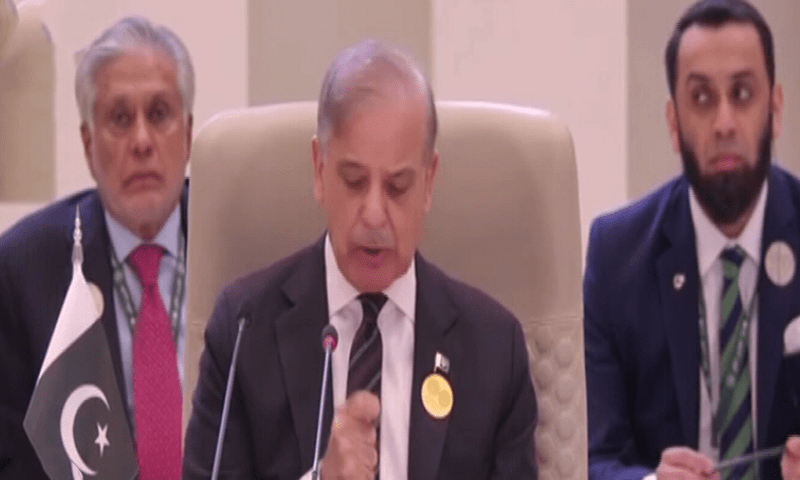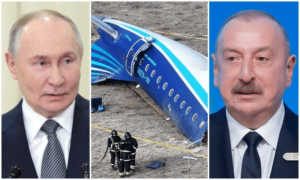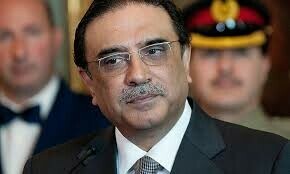Prime Minister Shehbaz Sharif delivered a speech to the Arab-Islamic Summit on Monday, denouncing Israeli aggression in Gaza, Lebanon, and Iran and reiterating Pakistan’s “unwavering support” for the people of Palestine.
Arab and Muslim leaders have gathered in Saudi Arabia on Monday for a summit addressing the conflicts in Gaza and Lebanon, a chance to send a message to US president-elect Donald Trump.
PM Shehbaz, who left for Riyadh on Sunday, addressed the summit and pointed out the rapidly deteriorating situation in Gaza.
“The humanitarian crisis in Gaza has reached a level beyond imagination,” he said. “For over one year, the occupied Palestinian territories, especially Gaza, have fallen in endless darkness and despair with devastated homes, lives lost and families torn apart.
“These atrocities committed against the Palestinians have rightfully been labelled as genocide, not only by the media but the International Court of Justice,” the prime minister added.
“With each passing day, every moral code is flagrantly violated by Israel. yet the killing and destruction continue with no end in sight. I ask … how long will this annihilation be ignored?”
PM Shehbaz then noted that Israel has become emboldened by the “world’s indifference and inaction”, lamenting that calls for a ceasefire and unimpeded humanitarian relief have fallen on deaf ears.
“The most sophisticated weapons continue to be supplied to Israel. Indeed, it has been assured of unconditional assistance and protection,” he said.
“International humanitarian laws meant to protect the vulnerable have been torn to shreds,” PM Shehbaz said. “Humanity is being tested and failing. Is it any wonder then that after decades of suffering and oppression, the spirit of resistance remains unbridled?”
The prime minister reiterated Pakistan’s commitment and unwavering support to “establish an independent, viable and contiguous State of Palestine with Al-Quds Sharif (Jerusalem) as its capital, based on the pre-1967 borders.” He stated that Palestinian self-determination is “the only avenue towards justice and durable peace in the Holy Land”.
The PM also condemned Israeli military action in Iran and Lebanon, warning: “Such escalations constitute a dangerous threat that could unleash a broader war.”
“As the Ummah, we are bound by duty, by faith and by our conscience to stand resolutely with the people of Palestine more than ever before,” Shehbaz said. “We must not let this systematic genocide and aggression persist.”
Israel’s retaliatory campaign against Hamas’s attack last year on Israel has killed more than 43,600 people in Gaza, most of them civilians, according to data from the territory’s health ministry that the United Nations considers reliable.
The Oct 7, 2023 attack on southern Israel had resulted in 1,206 deaths, mostly civilians, according to an AFP tally of Israeli official figures.
Lebanon-based Hezbollah began firing on Israel after the October 7 attack. The regular cross-border exchanges escalated in late September when Israel intensified its air strikes and sent ground troops into southern Lebanon.
Pakistan called for the following at the summit
- An immediate and unconditional ceasefire
- Impose an immediate arms embargo on Israel
- Lifting Israel’s blockade of Gaza and ensuring the prompt delivery of
food, water, electricity and medical aid - Accountability for Israel’s alleged war crimes
- The adoption of UNGA resolution 10/24
- A comprehensive review of Israel’s membership in the UN
“Let this summit be a moment to transform our voices into actions,” the PM said. “Together, we must move beyond condemnation and act swiftly to uphold justice and dignity for the people of Palestine and all those who face oppression.”
“May our unity today be the dawn of Palestine’s freedom.”
Trump looms over Arab-Islamic Summit
Despite criticism of the impact Israel’s military campaign has had on Gaza civilians, outgoing US President Joe Biden ensured that Washington remained Israel’s most important military backer during more than a year of fighting.
Addressing the Council of Foreign Ministers Preparatory Meeting for the summit a day ago, Deputy Prime Minister Ishaq Dar expressed hope that the incoming US administration would lend its weight to reinvigorate efforts for peace in the Middle East.
The Saudi foreign ministry had announced plans for the summit in late October during a meeting, also in Riyadh, of a new “international alliance” to press for the establishment of a Palestinian state.
It comes one year after a similar gathering in Riyadh of Cairo-based Arab League and Jeddah-based Organisation of Islamic Cooperation (OIC) during which leaders condemned Israeli forces’ actions in Gaza as “barbaric”.
This time around, Trump’s election last week for a second term in the White House is likely to be on leaders’ minds, said Anna Jacobs, senior Gulf analyst for the International Crisis Group think tank.
“This summit is very much an opportunity for regional leaders to signal to the incoming Trump administration what they want in terms of US engagement,” she said.
“The message will likely be one of dialogue, de-escalation and calling out Israeli military campaigns in the region.”
PM meets Saudi investment minister
PM Shebaz Sharif held a meeting with the Saudi Minister for Investment Khalid bin Abdulaziz Al-Falih and Royal Court Advisor Mohammed Al-Tuwaijri on the sidelines of the Arab Islamic Summit.
It was a follow-up meeting on the recent engagements for economic cooperation between the two countries, APP quoted a PM Office press release as saying.
PM appreciated the progress on major projects under discussion and acknowledged the efforts of the technical teams for their close cooperation to further strengthen economic partnerships in diverse fields.
He will also hold a meeting with the Muslim World League secretary general, state-run Radio Pakistan reported.
‘Rely on the Saudis’
In his first term, Trump’s actions showed him as an even firmer supporter of Israel.
He defied international consensus by recognising Jerusalem as Israel’s capital and moving Washington’s embassy there.
He also endorsed Israeli settlements in the occupied West Bank, which are illegal under international law.
Under the Abraham Accords, Trump oversaw the establishment of diplomatic relations between Israel, the United Arab Emirates and Bahrain, as well as Morocco.
Though Saudi Arabia did not join those agreements, Trump cultivated warm ties with the Gulf kingdom while in office and has deepened his business connections to the region during the Biden years.
Saudi Arabia has pressed pause on a US-brokered deal where it would recognise Israel in return for security and economic benefits, insisting there will be no diplomatic ties without a Palestinian state.
Umer Karim, an expert on Saudi politics at the University of Birmingham, said Riyadh will use Monday’s summit to signal to the incoming Trump team that it remains a strong partner.
The message is that Trump “can rely on the Saudis as being representatives of the Muslim world”, and that “if you want to extend American interests in the region, Saudi Arabia is your bet”, he said.
The 57-member OIC and 22-member Arab League include countries which recognise Israel and those firmly opposed to its regional integration.
Last year’s summit in Riyadh saw disagreement on measures like severing economic and diplomatic ties with Israel and disrupting its oil supplies.
Karim said the post-summit statement on Monday will likely “strongly condemn Israel […] while also pushing for greater American leverage and diplomacy on the issue”.
The November 2023 meeting featured an appearance by Iran’s then-president Ebrahim Raisi, highlighting how regional diplomacy has changed since Trump was last in office.
In March 2023, Iran and Saudi Arabia announced a China-brokered rapprochement after seven years of severed ties.
The Middle East heavyweights have maintained regular high-level contact as part of efforts to contain the ongoing conflicts.
Iranian state media said the chief of staff of the Saudi armed forces was to arrive in Tehran on Sunday for talks, a rare high-level visit.







